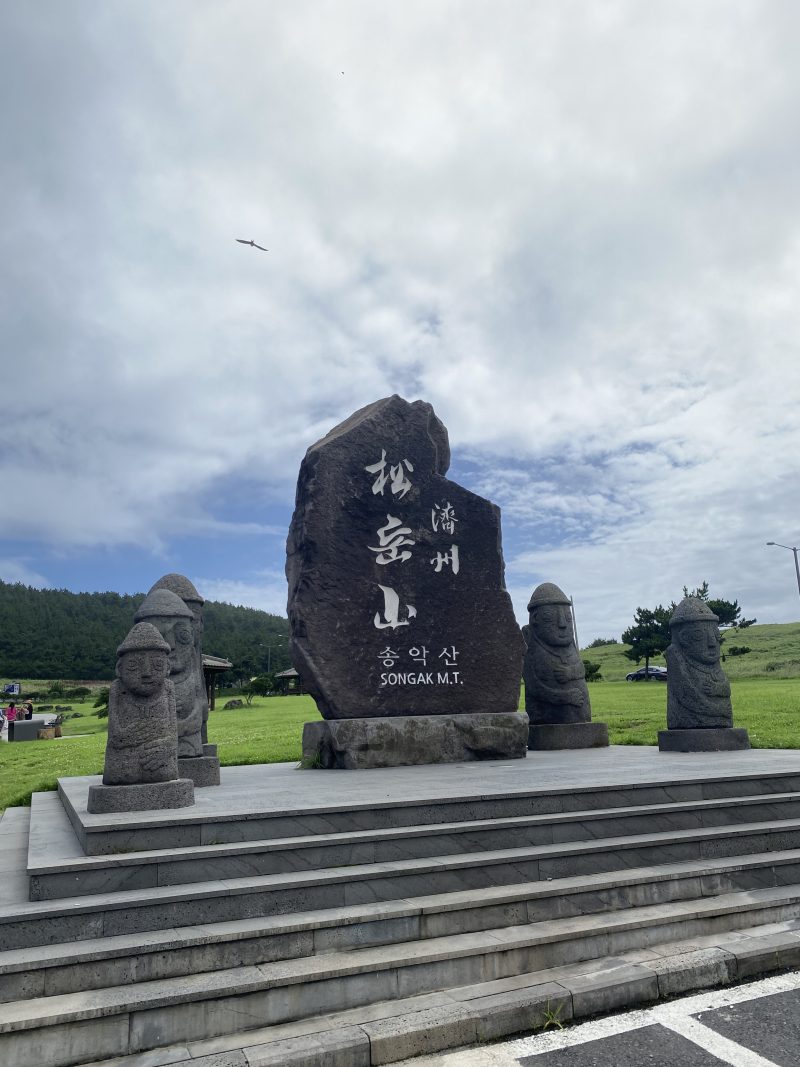Often when I meet new people in Korea, I am asked why I applied for this program. This question frequently follows out of curiosity after I inevitably raise my eyebrows and mime ‘I can’t speak Korean’ mid-conversation. Being fluent in Japanese and English, I have never been in a position where I had no understanding of what people are saying to me outside of basic introductory phrases. Usually, my answer lies along the lines of this being an opportunity that I will likely never encounter again. Living and experiencing Korea for a longer period of time beyond the extent of a typical tourist. However, whenever I answer this common question I feel a tang of guilt alongside gratefulness; embarrassed for being in a foreign country while not being able to speak their language. I reflect on how this is a privilege that comes from English being considered a universal language. Grappling with the idea that my native tongue is a necessity for others to succeed outside of their home countries is complex. I also understand that I rely on this existence of entitlement that someone will be able to speak English and help me through a conversation. I also feel that my background as a Japanese citizen is unique in Korea due to the history of colonization. However, my first weeks in Korea have been comfortable and I have felt safe even as a woman walking alone at night.
Working with the students has been a rewarding experience. It warms my heart when they remember my name and call me over to show me something they accomplished. As I can only speak Japanese, English, and Spanish, I am an instructor in the advanced English cohorts for both the younger and older age groups. The students in these classes are almost fluent in English and I can communicate with them fairly easily. They are accepting and open about their mixed backgrounds, and they ask me questions about my life in an effort to get to know me which I appreciate. The kids are polite and greet us in the hallways, skidding to a stop even during their fierce water gun chases. Especially with the older group, I realized how privileged I was to have grown up as an immigrant in the United States where generally being “different” is accepted. I have a younger sister (13) who is the same age as many of the students in the older age group and understand the emotional turmoil they face at that age. I can also empathize with how it must feel for them when they are unable to express their needs or wants due to a language barrier, on top of being part of a rigid society where difference is feared and rejected. I hope that my time at Jiguchon can help them realize that looking, acting, or even just seeming different is okay and that the world is much bigger than you realize.
I face the frustration of the language barrier most frequently when I attempt to make new friends or try to strike up conversations with strangers. It was crazy to realize I actually enjoy small talk!! Most recently I felt this at a volunteer experience this past weekend. Outside of being confused about instructions, I was annoyed at myself for being helpless. I was annoyed that I couldn’t help more, and I was annoyed that I couldn’t participate to the extent I wanted to. However, even with these limitations I was able to make 2 new friends and have plans to get coffee with them later this month. I appreciated that they went out of their way to communicate with me and we bonded over embarrassing miscommunications due to incorrect annunciation. I also realized that I have become more observant and receptive to body language and that communication is possible even without words.
Lastly, I am extremely grateful for my fellow Duke Engagers who are patient with me and graciously guide us through Korea with efficient translations and navigation… Even if we get lost sometimes!
– Nana Osaki



